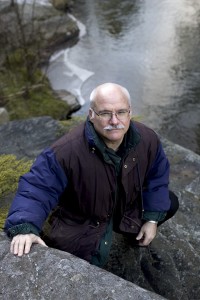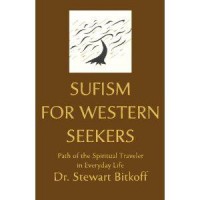Traveler: It is said that in order for the spiritual traveler to reach their goal, first they must unlearn much of what they have been taught. What is meant by this?
Master: Each person’s consciousness is a mosaic; a series of shifting patterns. Some thoughts arise from our biologic nature, directed at physical survival and caring for the body. Other thoughts are tied to emotions and expressing our self in the world. Still others arise from specific operating principles, beliefs and rules of conduct prevalent in our society. These codes and unwritten rules are necessary to maintain social order and daily life. In many ways, these thoughts form the fabric of each day and allow for orderly social patterns.
Similarly each religion, school and formal institution has a set of operating principles which are transferred and in some cases indoctrinated into members; these being necessary for the survival of that institution.
In helping the spiritual traveler reach what lies beyond ordinary consciousness and thought; that is, the assumptions and values we have about living in our society and what is required to do this effectively; these patterns must be examined and suspended, so they can be temporarily disarmed and pushed aside for a time. Sometimes this pushing aside occurs within specific exercises, other times, through personal examination and introspection; this being done so that the spiritual traveler can go within and explore deeper and more lasting levels to consciousness
Many times, our daily thoughts are filled with notions and ideas about things that are simply not true and have been proliferated by a specific societal entity so they can prosper at the expense of another.
Traveler: I am getting confused. Can you provide example of thoughts or ideas that are proliferated by an institution that may not be true?
Master: The task of the spiritual traveler is to become master of their own thoughts, so they can use and operate another level of consciousness that lies beyond ordinary thought. Many times the things we think about, which are effected in the main by strong institutions and leaders within our society, serve as snares or chains that hold us back from doing what we need or wish to do.
For example consider the notion of infallibility; that someone in power is always correct and acting in our best interest. This may or it may not be true. Similarly each society sets-up a series of written and unwritten rules or operating procedures which become expectations and codes of conduct. Sometimes these are useful and sometimes they are not. How about the idea of nationality; our country is better than yours. Or the notion our sports team is better than yours. Is it better simply because it is ours?
Another example, consider the child who grows up wishing to become a musician and is not interested in math, science or working in a business setting. In school they will be told it is best that they learn what everyone else is learning, because these identified skills are necessary for everyday life. Yet the child’s heart is not in this, wishing only to pursue the dream of making beautiful music.
Or take the example of a religious body that maintains that their way of worship is the only way; yet as a believer looks about there are hundreds of religious forms and after questioning is told: you have to have faith that our way is best.
Because of the inherent conflict in each of these situations, due to the relative importance of specific ideas, this makes it very difficult for the spiritual traveler to go beyond these surface levels of consciousness. The traveler is in conflict, and until this clash of emotions is resolved, very little inner development can occur. As discussed earlier, everyday thoughts have to be pushed aside, or stilled for a time, so something else operating on a deeper level may come forward.
Please understand, the conflicts identified above as examples, depending upon the traveler, may take years or moments to resolve; the point of our discussion is to help the traveler learn to monitor their thoughts, examine assumptions and identify when indoctrination is operating so they can go deeper: temporarily suspending specific ideas. Before you can learn to still potentially troubling thoughts, first you must conceive of it as a possibility. This process, we term, unlearning.
We all have to live in society; we are social beings. Our way is to teach travelers how to access what lies beyond everyday levels of consciousness. To do this effectively, travelers must understand how their thoughts operate, when they are based upon false assumptions and when they are consciously engineered and manipulated by others. This learning is not intended to remove existing thought patterns or replace them with others, but to allow the higher consciousness to come forward.
Discussion: Conditioning & Spiritual Studies
In varying degrees, each traveler is a product of their culture and environment; conditioned to want and think specific things which the overall culture indicates as important. This is neither good nor bad; it is a matter of effect. How does wanting one thing and not another effect your life and is this really what you want or something which has been engineered into you to desire or fear. That is the question which must be considered: how does believing one thing and not another effect your life, choices and consciousness?
For the spiritual traveler, it is important to recognize and when necessary disarm the effects of conditioning, so, that another level of consciousness may operate. When we are busy thinking certain thoughts and worrying about others, typically, the higher consciousness is dormant below the surface. Levels of ‘inner noise’ or emotionality: keep our higher consciousness from emerging.
Consider this example and its effect upon daily consciousness. Most religious and spiritual systems indicate that the traveler must believe and act in specific ways; while this position is a necessary component in all learning, some systems insist theirs is the only ‘true system;’ and unless the traveler accepts all teachings, they are doomed to failure and may be banned from the system.
What of the traveler who has a question about specific teachings and is given the above response? Consider the energy, both emotional and intellectual, expended trying to resolve this conflict; while part of this manipulation is intended to control and proliferate a specific belief system – the real problem, in terms of accessing higher knowledge, is that while all this ‘noise’ is going on in the traveler’s head- another dimension cannot operate. While a specific teaching is working on a surface level, trying to control specific beliefs and behaviors, nothing of a real inner value can occur.
In our western culture, most of us have been taught that capitalism, with its value of a free market economy with little governmental control, is the best system. Now it may be, however, by adding the value ‘best’ this negates, on some level, other economic systems, which may also have something of value. Additionally it conditions and controls the traveler not to look at other systems too closely, and subtly suggests that they are doing something wrong, when making inquiry into other systems or challenging the present one.
In the process of unlearning or examining the effect of conditioning, what the spiritual traveler is trying to accomplish, is to reach a mental posture, relatively free of emotionality, where they can examine different values and systems; and temporarily free self, as necessary, from the psychological effect imposed by living in all social groups.
Within our society, most institutions operate using ‘either’ ‘or’ frames of reference; this quickly translates into a ‘good or bad’ mentality, with a ‘you are with us or are against us’ posture. Additionally in these systems, fear and reward are the motivating carrots; and individual inquiry is minimally supported or encouraged.
To rise above these effects, the spiritual traveler must learn to recognize when conditioning and mental engineering is operating; temporarily pushing aside these mental effects, and allowing higher consciousness, which has been prepared through a period of focused training, to come forward.
Thoughts to Ponder
- Often we are like small children playing with the sand castles of our imagination. True reality is only evident when we are not connected, emotionally, with the emerging pattern. This emotional attachment blocks our vision and we live in a private world of fantasy.
- Spiritual Sight– That which is permanent is seldom known to the senses. It must be perceived by another capacity. Until this capacity or organ of perception is awakened, we are like heedless children playing with fire. Sooner or later our actions create problems for us. The completed individual, or enlightened one, is able to temper their expectations with reality. Often it is our reaction to daily events and not the events themselves which pose the lasting problem. We must learn to view and accept what is present; not what we want or expect to be present. By clouding reality with expectation and desire we shift off center. This lack of balance, in turn, prevents us from perceiving what is before us. This capacity or necessary ‘attitude’ to view what is actually present may be learned. It is the birthright of humanity and is taught to those who are capable of using it in the proper way. This spiritual sight is a matter of function; it becomes available so it may be used to benefit others. By learning to view what is actually present, we are then able to perceive higher or spiritual realities which manifest in this realm.
Quotes to Consider
- He whose undertakings are free from anxious desire and fanciful thought, whose work is made pure in the fire of wisdom: he is called wise by those who see. – Bhagavad-Gita
- One’s own misdirected thought can do one more harm than an enemy or an ill wisher. – Dhammapada
Action for the Day
- One antidote to unfulfilled expectation is to practice gratitude. Focusing on what you have, as opposed to what is lacking; this practice lifts the soul higher. List five things/people you are grateful to have in your life. Consider why you enjoy having them as part of your life. Next consider what your life would be like, if they were not present. For the most part the mind can only keep one thought in it at a time. Remember. Whenever you can, fill your mind with joyful, positive things. Not just thoughts about things you desire or want; which may or may not be fulfilled.
“Then which of the favors of your Lord will you deny?”
– Koran
________
Check-out my two books: Sufism for Western Seekers: Path of the Spiritual Traveler in Everyday Life and The Ferryman’s Dream. Both books are also in Kindle format and available on Amazon.com or local bookstore.
If you are interested in learning more about universal mysticism and Sufism contact: drbitkoff@yahoo.com.








{ 4 comments… read them below or add one }
Great words from a master who can wade through the depths to make it understandable for the average traveler.
Thanks for your positive words and hope the message helps others.
i don’t know where i got the idea, but as a kid i found myself looking at other religions from the then-Roman-Catholic belief that even to visit another faith’s place of worship was a “sin”. And then i found out my Dad’s family were various forms of conservative, evangelical and fundamentalist varieties of Christian. Later, at 12, i met my first classmate of another faith. And somewhere along the line i found myself asking “But what if that’s not true? What if the Catholic – or any other Church – is not the only way to get to Paradise/Heaven/ The Celestial Kingdom or whatever one chooses to call a pleasant, peaceful and harmonious after-life experience? This got me studying and reading at a young age on such things and i have got much good out of it – including realizing that 90% of what is taught under the guise of various religions, is, in fact something they all have in common – yet some folks seem to be bound and determined to focus on and even hate those of other faiths due to the 10 % we differ on – i just don’t get that!
Hi Granny:
Thanks for sharing. Recently, I had learned from another person who is Islamic that he also felt that if he went into another faith’s house of worship, God wouldn’t like it and it was a sin. I myself, who was raised Jewish, was scared to death to go into a church for many years.
All of this conditioning, just to maintain control over us. People still use religion for all kind of power trips and scams. People will use whatever they can to get an advantage . . .